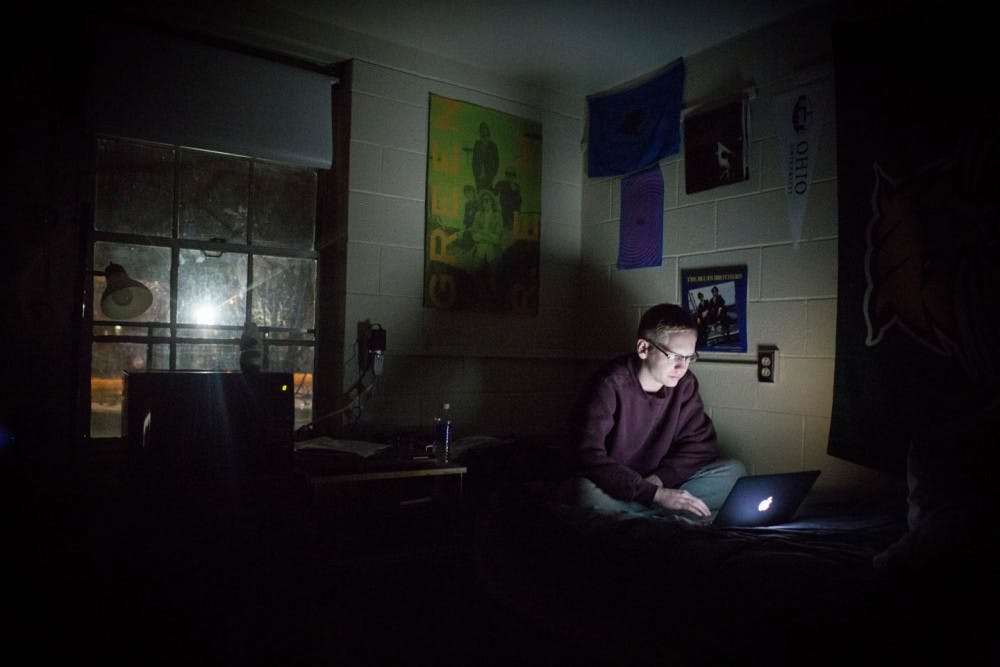Bad sleep habits have the potential to change for the new semester
College students are notorious night owls. School nights are spent studying, typing away on laptops, working the closing shift or laughing with floormates until the wee hours of the morning.
The Center for Disease Control and Prevention recommends seven to eight hours of sleep for people of adult age, but such a number can be unrealistic for some college students.
“I set, like, 50 alarms in the morning to get to my 8:35 class, and then go home and sleep most of the time,” said Jeff Fields, a freshman studying civil engineering.
Counseling and Psychological Services officials estimate about 25 percent of students seen at CPS reported high levels of sleeping difficulties; another 55 percent reported mild to moderate difficulty.
People often try to cure their sleeplessness by taking naps during the day or sleeping longer on weekends and days off, according to the National Heart, Lung, and Blood Institute.
Although this creates a feeling of restoration, it ultimately upsets the body’s sleep rhythm and is not recommended.
Each individual has his or her own “circadian rhythm,” which means some people are biologically predisposed to be more productive in the morning or at night. Humans, however, according to Psychology Today, can override their circadian rhythms.
The article also found that more intelligent individuals tend to be “night owls” and stay up later.
Weiner and Castelino recommend developing a regular routine to synchronize body clock and biological rhythm.
Psychology Today also reports people that stay up late and sleep late can develop “social jet lag,” which affects sleep-wake routines and increases difficulties with early-morning starts.
“The effects of short-term sleep restriction may include fatigue and irritability. Prolonged sleep loss may have more serious health consequences such as changes in metabolism which may increase the risk for obesity and chronic disease such as diabetes,” said Matthew Wilkinson, a graduate student researching experimental health psychology.
Wilkinson explains that studies show people who regularly sleep less than six hours per night are at risk for heart disease, the number one cause of death in the United States.
Sleep deprivation therefore has the potential to take a toll on academic success as well, negatively altering mood and thought processes as well as physical health and the immune system. These factors can intensify over time.
“Studies have shown that 19 or 20 hours without sleep negatively affects our cognitive functioning ... Our ability to concentrate and perform academically significantly decreases,” Weiner and Castelino said in an email.
Students may also suffer from more serious issues such as anxiety, worry or a sleep disorder.
“I think students here in general have bad sleep habits,” said Melanie Anderson, a sophomore studying health administration. “The new semester should inspire everyone to change what they’re doing.”
@katekevvv
kk940213@ohio.edu






